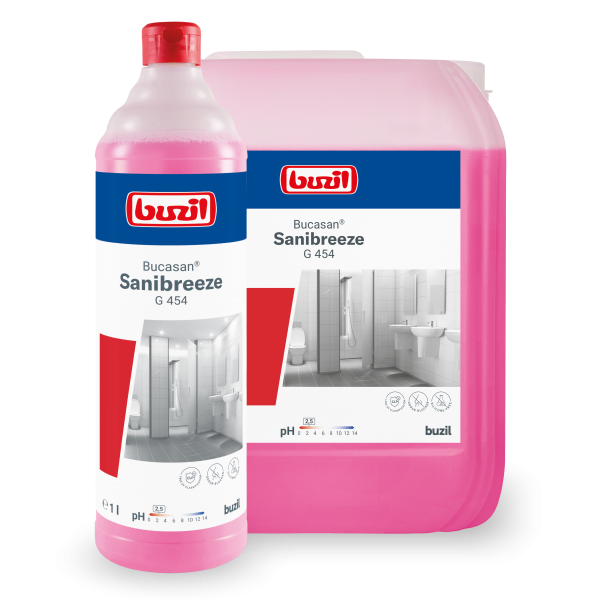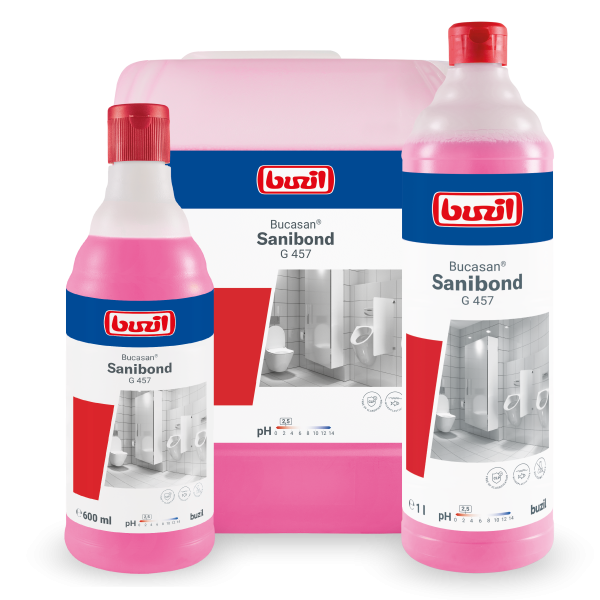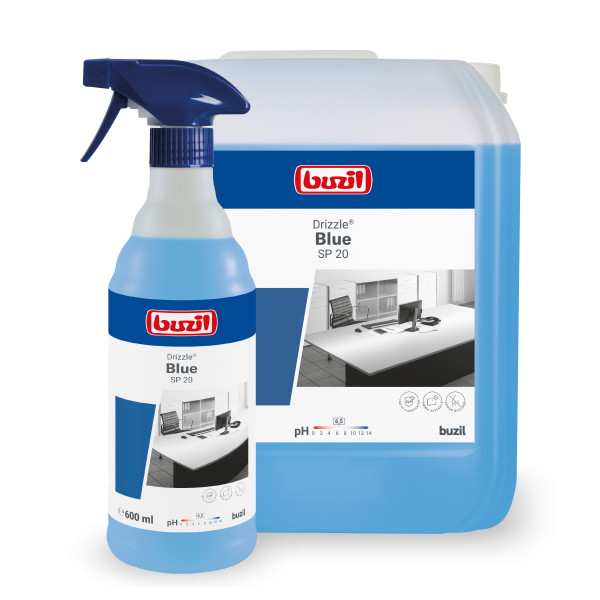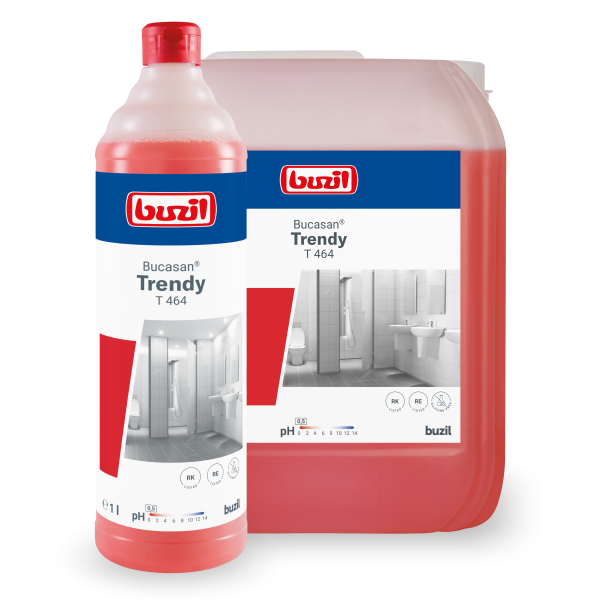Utilization
Soiling
-
Mineral soiling (lime, cement residue, urine scale, etc.)
-
Bad odours
Material compatibility
-
Ceramic tiles
-
Sanitary porcelain
-
Aluminium | indoor
-
Porcelain stoneware tiles
-
Safety tiles
-
Stainless steel
-
Clinker and terracotta
Product Information
- Deodorising fresh fragrance with active odour blocker
- Easily removes lime, dirt and soap residues
- Excellent cleaning effect
- Streak-free gloss without subsequent drying due to beading effect
- Suitable for application in the foam gun and the single-disc machine
Area of application
- for the entire wet room and sanitary area
- on all acid-resistant materials and surfaces
- ideal for sanitary porcelain, chrome, stainless steel and aluminium surfaces, wall and floor tiles
Application and dosage
- Always use cold water.
- Be sure to pre-wet surfaces and rinse with clean water!
-
undiluted
-
20 - 100 Millilitre / 10 liter Water
-
20 - 100 Millilitre / 10 liter Water
-
50 Millilitre / 600 Millilitre Water
-
1:5 - 1:10 with water
-
200 - 1000 Millilitre / 10 liter Water
- Apply fresh application solutions and consume them within 24 hours at the latest.
Note
- Do not apply to lime-bound natural and artificial stones, painted surfaces and acrylic glass.
- Changes or variations in colour of the product do not impact on the quality. The product image may differ in colour and shape from the original.
Tips and tricks
low / weak cleaning performance
choose a basic sanitary cleaner, e.g. Bucalex® G 460, Buz® Contracalc G 461
no cleaning performance
choose a problem solver, e.g. Buz® Mark Ex G 559, Clean Up G 555, Buz® Point G 502, Buz® Metasoft G 507
Stripes and/or film on the surface
Rinse thoroughly with clean water
Surface damage (discoloration, swelling of material, etc.)
check chemical and water compatibility
Environmental Information
Proportion of easily degradable ingredients
94.6 %
Phosphorus content
1.2 mg/g
Palm oil-based raw materials - RSPO-certified share
100 %
The proportion of easily degradable ingredients refers to the proportion of organic ingredients that are defined as “easily biodegradable” according to OECD 301 or Detergent Regulation (EC) No. 648/2004. The value of the phosphorus content refers to elemental phosphorus. Palm oil is an important renewable source for the production of raw materials. The Roundtable on Sustainable Palm Oil (RSPO), founded in 2004, promotes sustainable cultivation methods for palm oil. This results in a certification system and the possibility of declaring raw materials as “RSPO-certified”.
Sales units
- G454-0001RA: 12 x 1 l bottle
- G454-0010RA: 1 x 10 l canister
Download area
- Operating instructions
- Safety Data Sheets
- Technical Data Sheets
- Environmental Information






